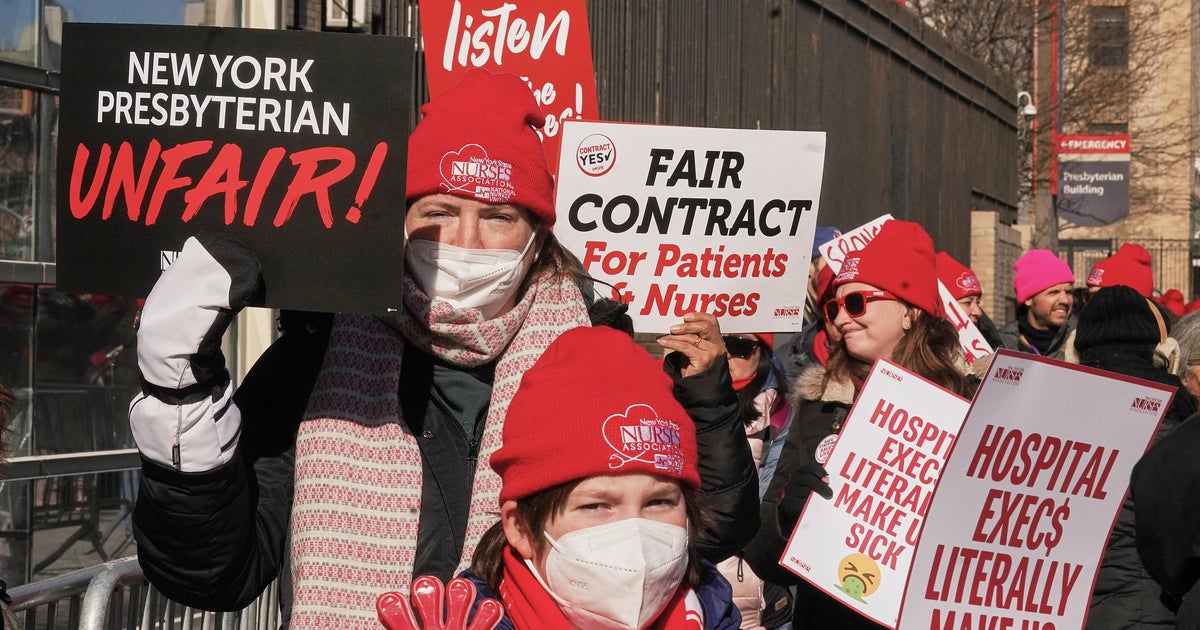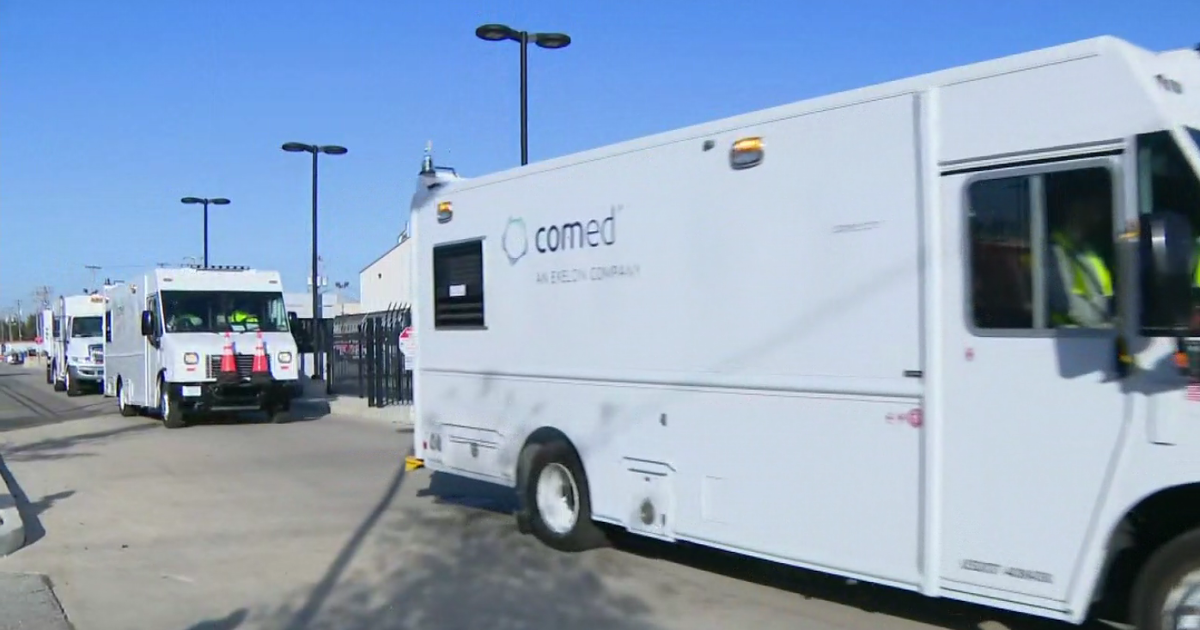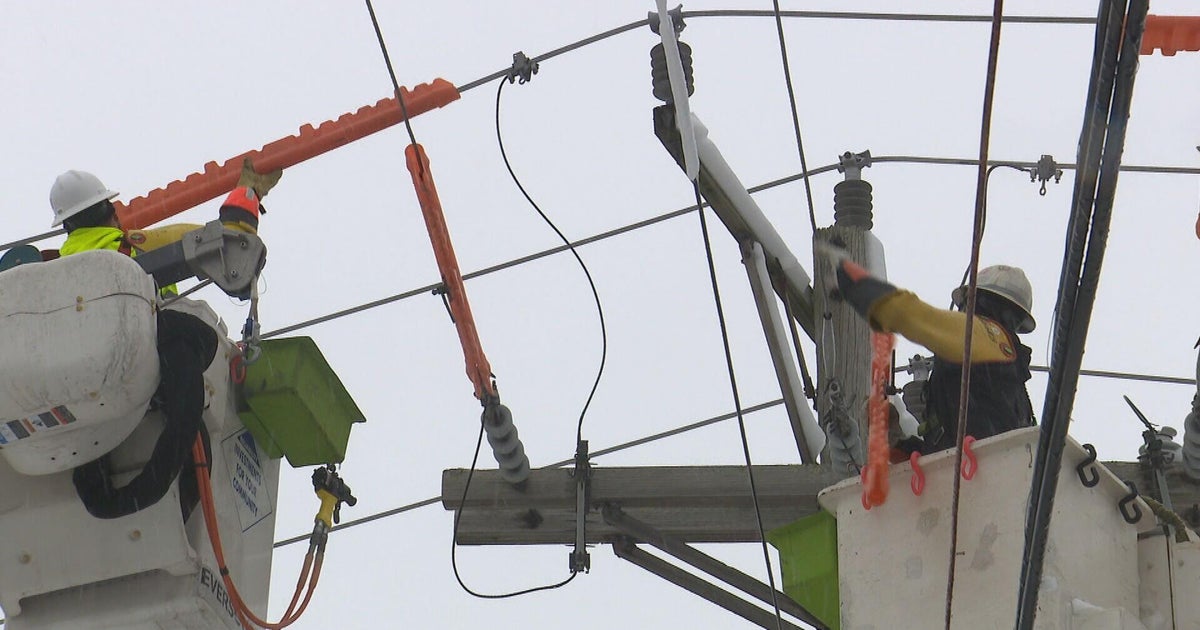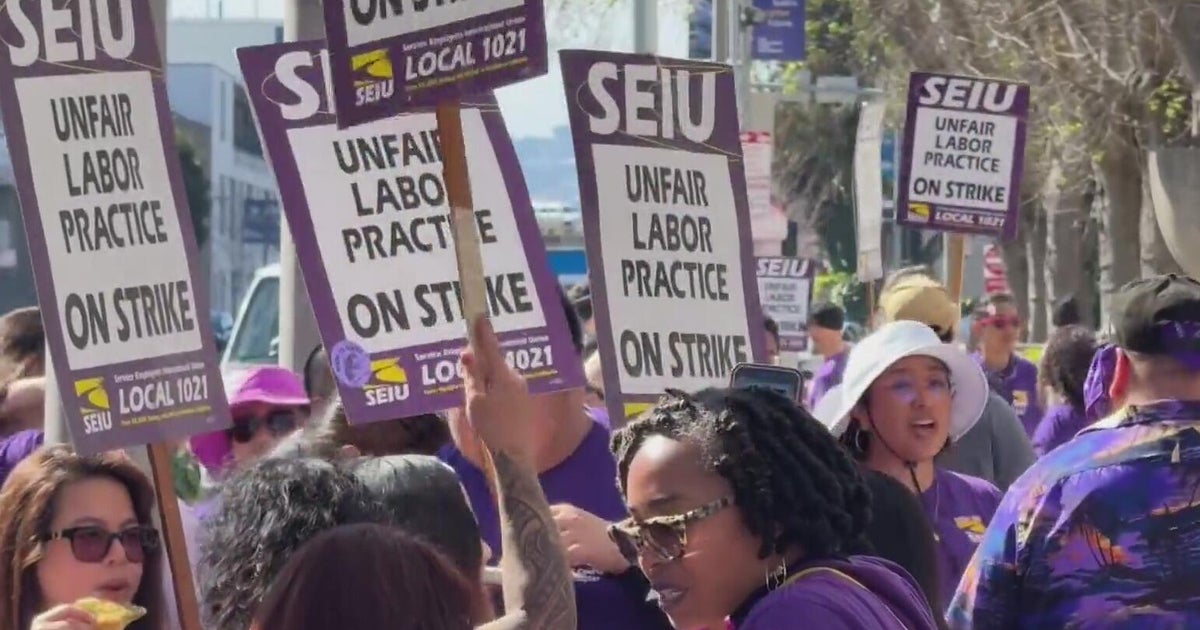New York "fully prepared" for dockworkers strike, Hochul says
NEW YORK -- A potential dockworker strike may hit the East Coast within 24 hours.
Fourteen ports from Massachusetts to Texas would be impacted.
Experts say such a strike would cost the U.S. economy billions of dollars per day, and would hurt everyone, including businesses, workers and consumers.
The deadline for a deal to be reached is Monday night at midnight. That's when the current contract expires.
New York and New Jersey have several ports that would be impacted by such a strike.
"New York is fully prepared"
Gov. Kathy Hochul spoke to reporters at Port Authority headquarters Monday about the possible strike.
"We fully anticipate there will be a strike before midnight tonight," Hochul said.
Thousands of dockworkers on the East and Gulf coasts will walk off the job if the International Longshoreman's Association (ILA) and the U.S. Maritime Alliance (USMX) don't reach a deal. That includes 4,500 workers in the New York and New Jersey area.
"The stakes are very high. The potential for disruption is significant," Hochul said.
Hochul said the state has been working to get 100,000 cargo containers off ships while they can "at a hyperspeed because we know the urgency is before us."
Hochul said there's been "a lot of preparation" for a possible strike, both on the part of government and manufacturers, so she hopes to avoid the shortages that happened during the pandemic.
"We are very focused on this," Hochul said. "Do not have the level of anxiety that drives you out to get your groceries unnecessarily soon. We don't think there will be disruption to the food supply."
Hochul said pharmaceuticals aren't expected to be impacted, because most of them are transported by air. That state says it has stockpiled some medical supplies and is prepared to distribute them if needed.
"New York is fully prepared," for a strike, Hochul said. "While we're preparing for the worst, and that's what we're supposed to do in government, prepare for the worst, there is also some reassuring news. We don't anticipate shortages of essential goods anytime soon. So, for example, people do not need to rush out to the grocery store and stockpile goods like they did during the pandemic."
She said the primary sources of the food supply to New York include Canada, California and Mexico.
The looming strike could affect the supply chain and the cost of building materials. Specific imported goods, like certain fish and fruits, could be disrupted.
Hochul said home heating oil, gas and diesel are not anticipated to be impacted in New York City, and municipal waste operations will also continue.
Hochul said she is expecting disruptions in the car industry.
"If you're expecting to be able to get a new car this week, you may want to check with your dealer. It may not be arriving, for example, in the next few weeks," Hochul said.
She urged both sides to reach a deal, while asking New Yorkers not to overreact if they don't.
"Prices will go higher"
Matthew Shay, CEO of the National Retail Federation, said a shortage of products leads to a ripple effect.
"At a time when we are turning the corner on inflation after two and a half years, what they are going to do is raise prices and that's the last thing the economy needs," Shay said.
"Prices will go higher, without a doubt," Abdul Jawad, the owner of a Foodtown in Prospect Heights, said. He said his banana shelf might be empty within a week of the strike, as his bananas are all imported.
A Port Authority memo obtained by CBS News shows terminals extended their hours over the weekend in an effort to move as much cargo as possible ahead of a potential work stoppage. Distributors told CBS News they've stockpiled some products to try to limit the impact.
Hochul said she doesn't not expect food shortages overall.
"I'm warning everybody right now, do not do anything to affect the prices. There should be no extraordinary increases in the aftermath of this strike as well," Hochul said.
A strike would have a major impact on U.S. trade. Roughly half of all goods shipped in containers in and out of the country moves through those ports.
On Sunday, President Joe Biden said he wouldn't intervene in the negotiations, which have been stalled for months.
The last East Coast dock strike took place in 1977 and lasted 12 days.
Among the issues is the wages at the East and Gulf coast ports. They make $39 per hour after six years on the job. Their peers on the West Coast make $54.85 per hour, and that will increase to $60.85 in 2027.
Another issue is automating cranes, gates and container movements when cargo is loaded and unloaded.
Experts say while West Coast ports could take on some cargo diverted from the East Coast, they wouldn't be able to handle all of it.








